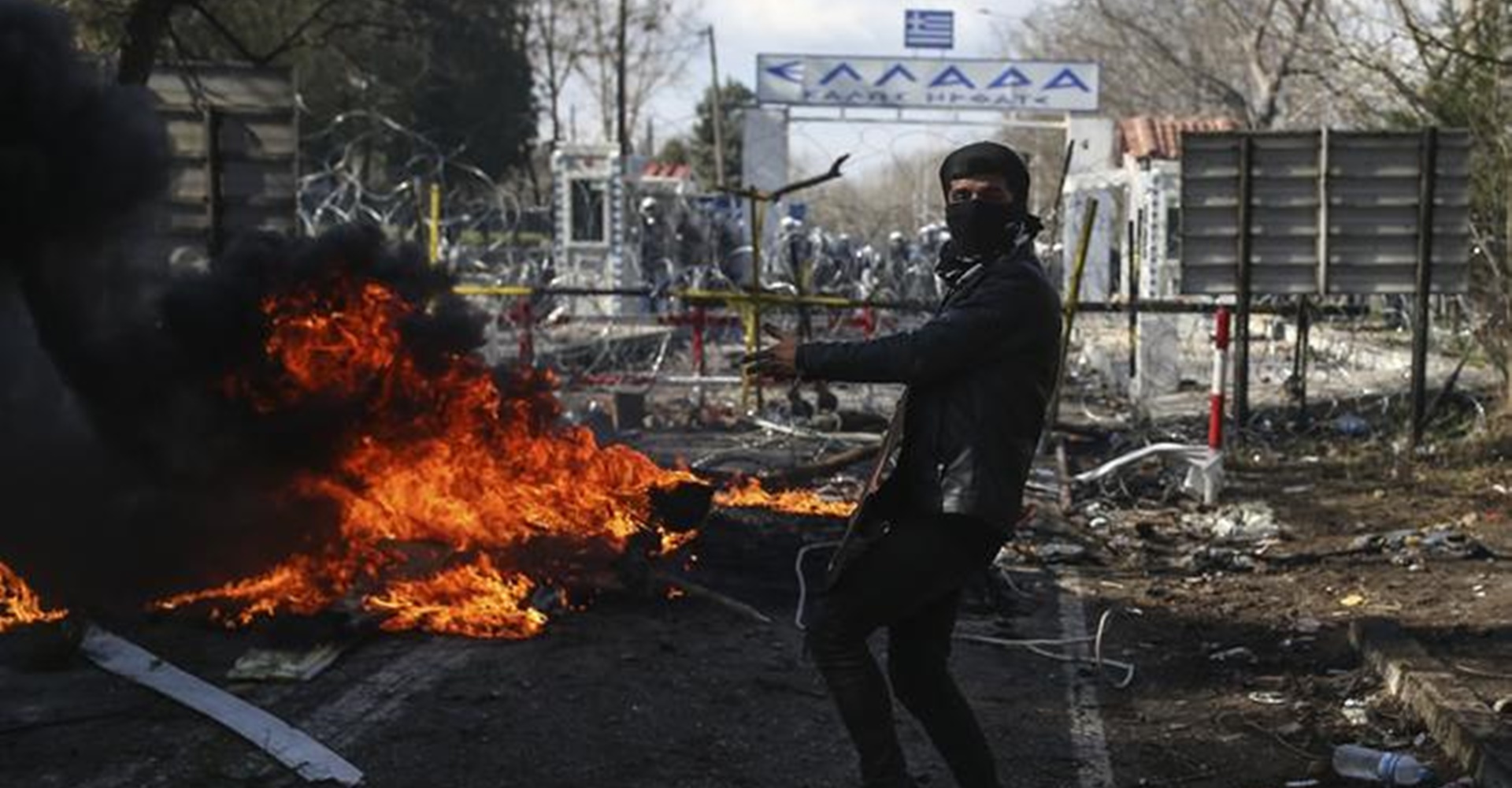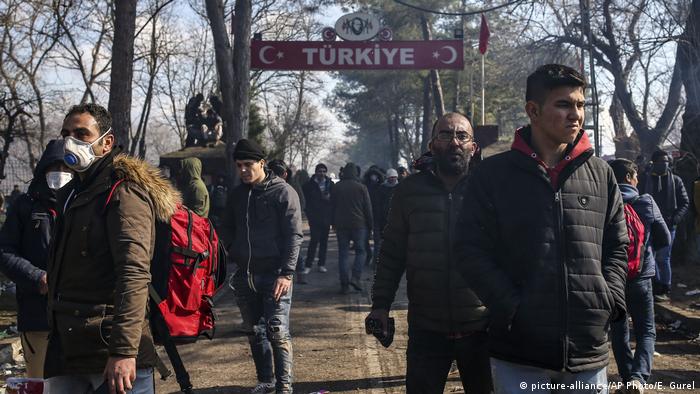Greek officials say they have blocked 10,000 people from entering the European Union from Turkey, while Ankara reports 76,000 people have crossed the border. The EU’s border control agency says it is on “high alert.”
Greece blocked nearly 10,000 “illegal” entries into the European Union from Turkey on Saturday and Sunday morning, a government official has said.
The statement on Sunday comes a day after 13,000 migrants gathered on the Turkish-Greek border, following Ankara’s announcement that it will no longer stop refugees from crossing into Europe.
“From 06:00 [04:00 UTC] Saturday morning to 06:00 Sunday morning, 9,972 illegal entrances have been averted in the Evros area,” Greek Deputy Defense Minister Alkiviadis Stefanis told local broadcaster Skai.
Stefanis said all were successfully thwarted. Greek Prime Minister Kyriakos Mitsotakis planned to chair a meeting of the national security council later on Sunday.
But Turkey claims more than 76,000 migrants successfully crossed into Greece.
“As of 09.55 hours, the number of immigrants leaving our country via Edirne; 76,358,” Turkish Interior Minister Suleyman Soylu wrote on Twitter, without specifying a time frame.
Meanwhile, Greek Defense Minister Nikos Panagiotopoulos accused Turkey of intentionally organizing the migrants along the shared border after finding out where Greek troops are posted.
Athens has also accused Ankara of convincing migrants to travel to Greece using incorrect information. “The Turkish authorities’ disinformation campaign continues. The reality: 10,000 people were prevented from entering Greek territory,” the Greek Foreign Ministry tweeted on Sunday.
Greece is reportedly sending text messages to migrants gathered on the Turkish side of the Evros river border, which read, “Do not try to illegally cross the Greek border.”
At least 220 migrants reached Lesbos
Some migrants did manage to cross into Greece on Saturday night and Sunday morning.
“Here in Greece, 220 refugees arrived on the coast of Lesbos and were brought into a camp,” DW’s Greece correspondent Florian Schmitz reported. The Reuters news agency reported that more than 500 people may have made it to Greece from Turkey within 24 hours.
Read more: Will the EU-Turkey refugee deal collapse?
Thousands more remain in Turkey near the border.
“We heard on the news that the border was open,” one man told DW’s Turkey correspondent Julia Hahn. “Now we understand it was all just a political game.”
The Greek government arranged an automated text message to be sent to mobile phones in the northern border areas of Greece. The text said the country had increased its security to a maximum and urged people not to attempt to enter.
Bulgaria, which also shares a border with Turkey, said that not a single migrant has illegally crossed the border.
Frontex on ‘high alert’
The EU’s border protection agency Frontex also said Sunday it is on “high alert” on borders with Turkey, as thousands more migrants are expected to attempt to enter the bloc, adding it is deploying support to Greece.
“We have raised the alert level for all borders with Turkey to high,” a Frontex spokeswoman said in a statement to the Agence France-Presse news agency.
“We have received a request from Greece for additional support. We have already taken steps to redeploy to Greece technical equipment and additional officers,” she added.
dw.com / balkantimes.press
Napomena o autorskim pravima: Dozvoljeno preuzimanje sadržaja isključivo uz navođenje linka prema stranici našeg portala sa koje je sadržaj preuzet. Stavovi izraženi u ovom tekstu autorovi su i ne odražavaju nužno uredničku politiku The Balkantimes Press.
Copyright Notice: It is allowed to download the content only by providing a link to the page of our portal from which the content was downloaded. The views expressed in this text are those of the authors and do not necessarily reflect the editorial policies of The Balkantimes Press.


